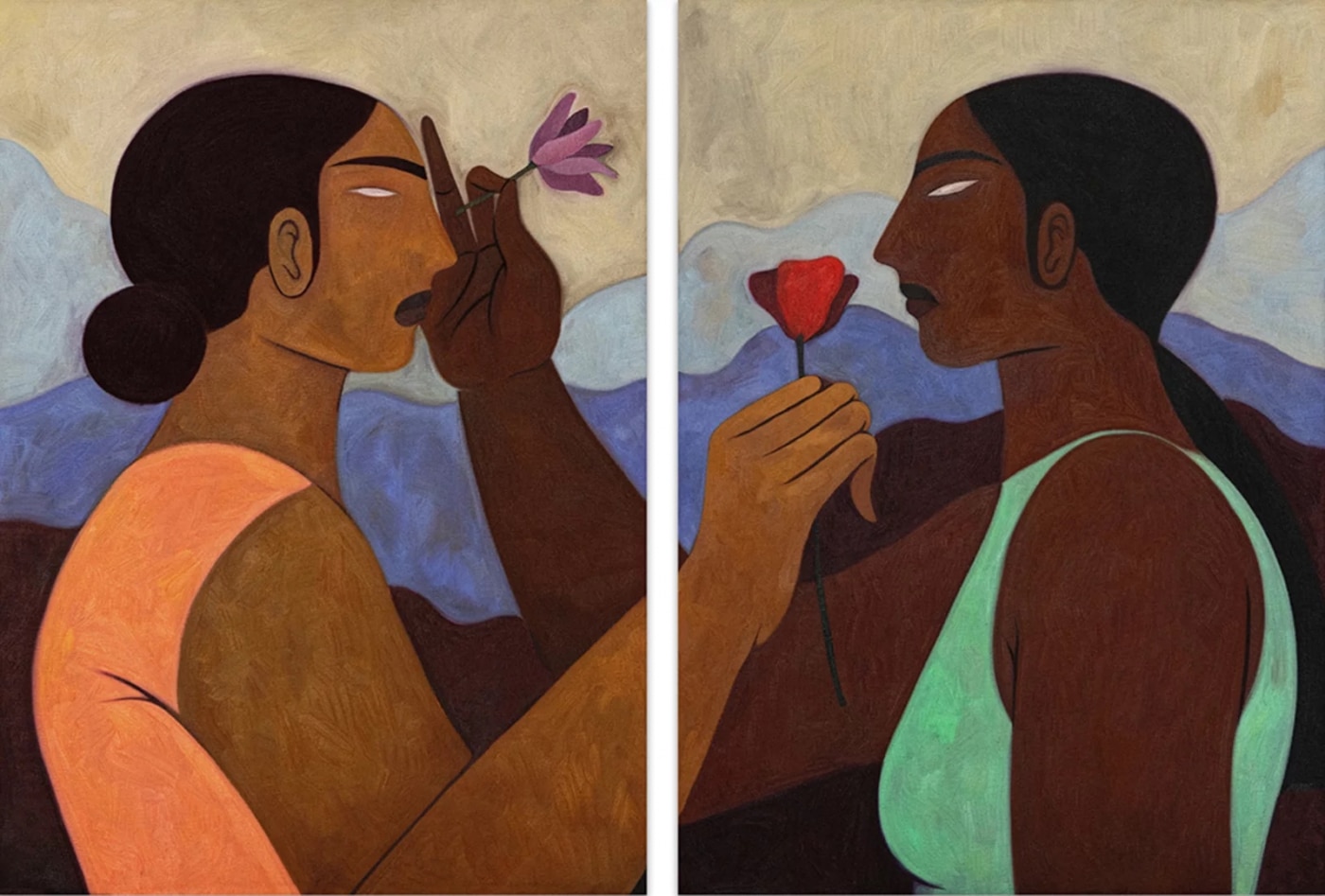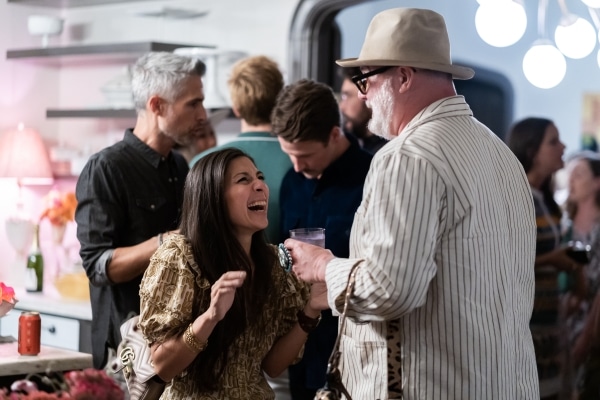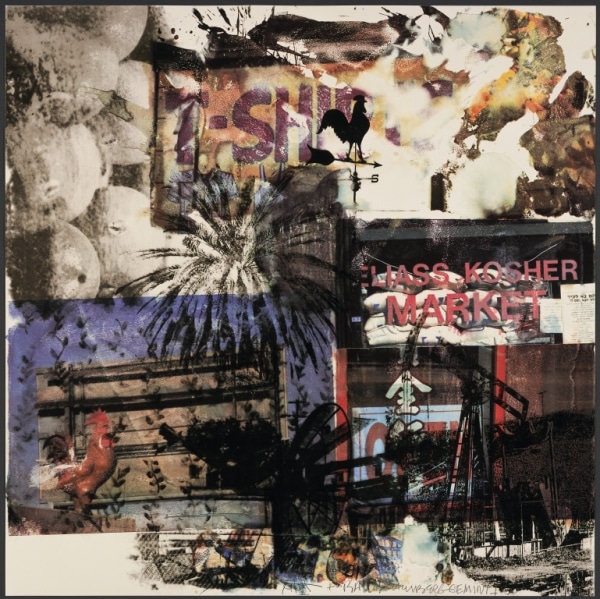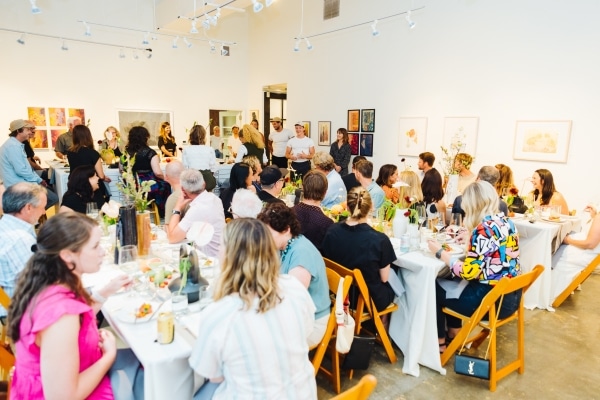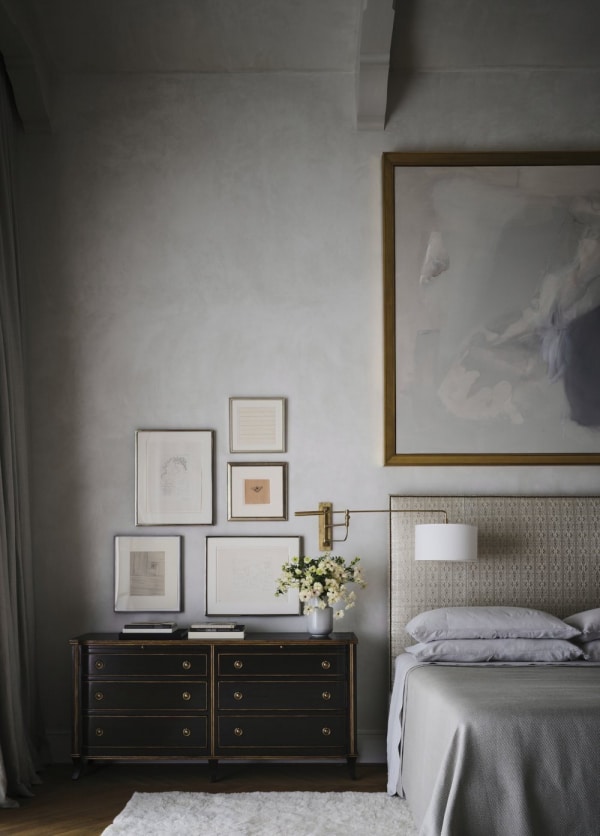Female empowerment through art: voices of strength and resilience.
Art allows us to express ourselves, challenge societal norms, and inspire transformation. Women artists, in particular, have used art to tell their stories and highlight their struggles, being a vital tool for empowerment. They’ve created iconic works that defy traditional expectations and celebrate the essence of womanhood.
From museum-acquired artists to local talents, we are proud to feature a diverse range of female artists who celebrate empowerment, some of which are in our collection.
Hilda Palafox: Celebrating Feminine Strength
Hilda Palafox, also known as “Poni,” is renowned for her colorful murals and confident, comfortable paintings of women. As her work always tended to portray women, she realized that people identified her work as feminist: the body language, the mysterious glares, or the fluidity of their presence. This realization led her to consciously embrace and explore the themes of femininity in her work. Poni celebrates the strength and confidence of women, presenting a positive message of empowerment and change. Her creations inspire and uplift, reflecting the determination of women navigating contemporary challenges.
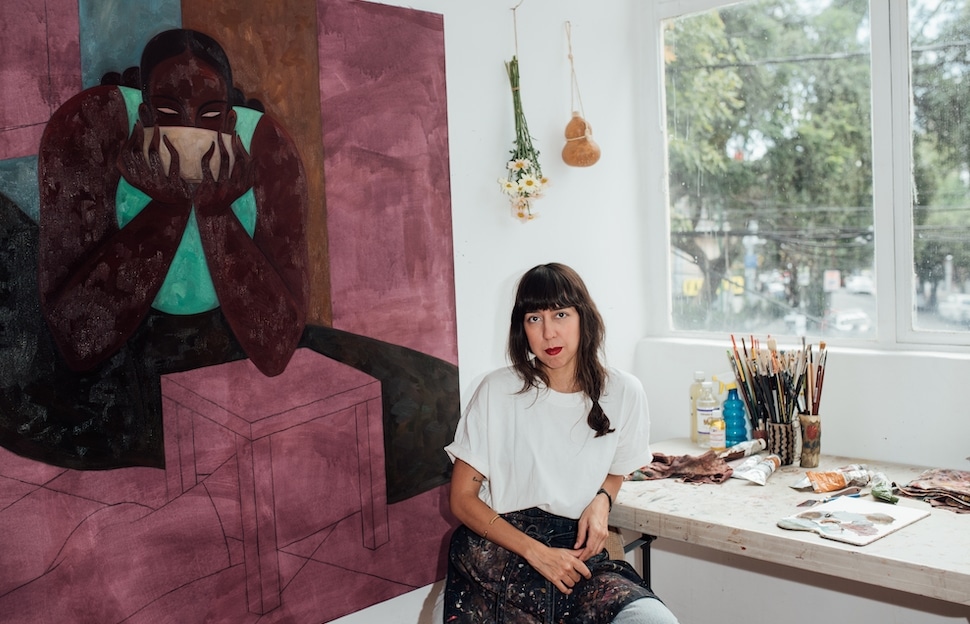
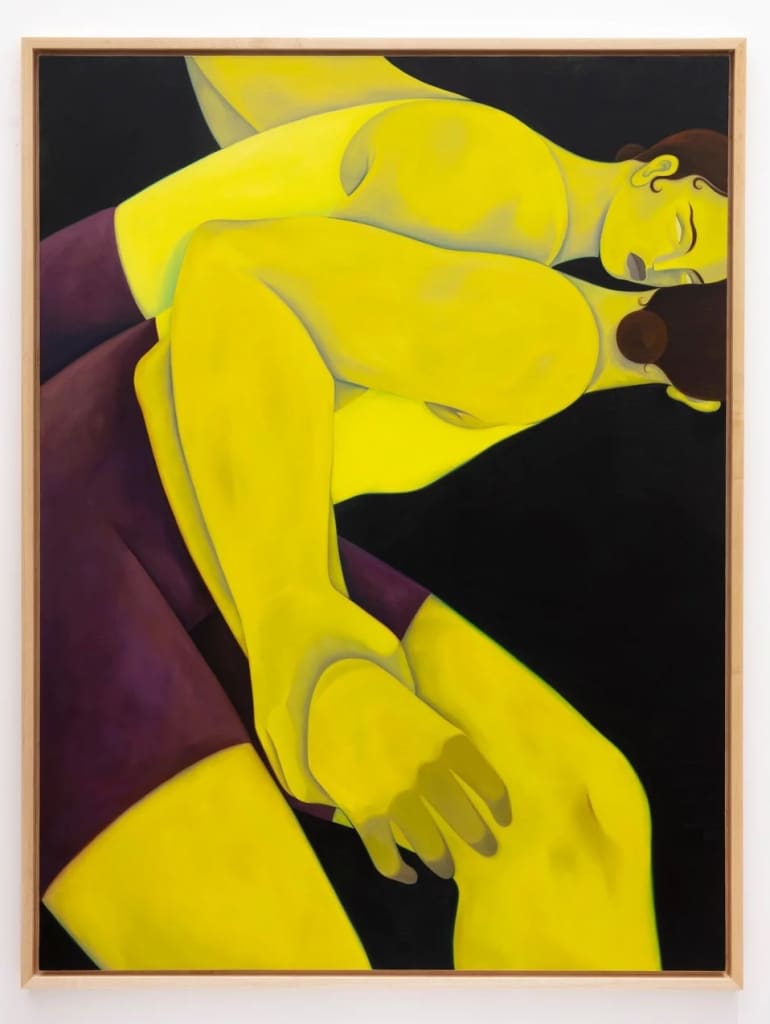
Ella Walker: Reinventing Historical Narratives
Ella Walker combines medieval stories with contemporary womanhood in her large-scale, fresco-like paintings. Her work revisits European medieval and Renaissance fresco traditions, placing women at the forefront and challenging conventional representations of femininity. Walker’s paintings merge historical iconography with contemporary scenes. By reinventing these narratives, Walker creates work that challenges viewers’ expectations and highlights the strength of women throughout history. Her paintings transform old stories into contemporary plots of tragedy, comedy, and love, showcasing the enduring power of women.
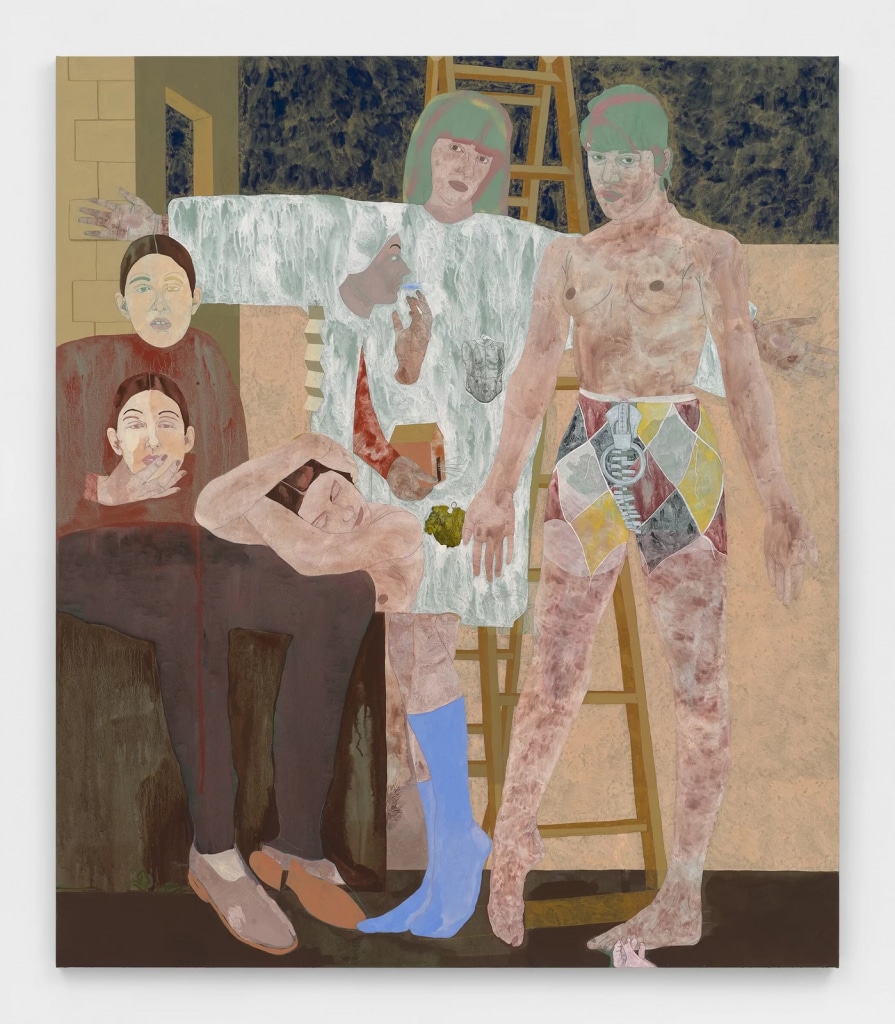
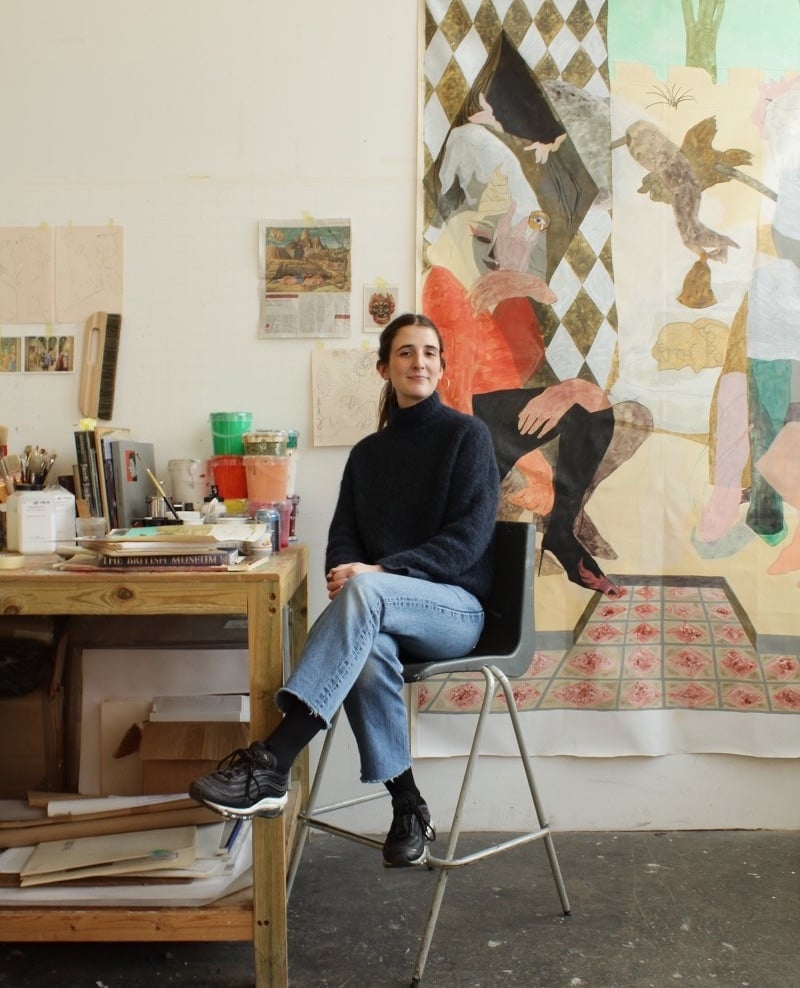
Yayoi Kusama: Infinite Self-Exploration
Yayoi Kusama’s light installations, polka-dotted paintings, sculptures, photographs, and performance art revolutionized the male-dominated New York art scene in the 1950s. Her work invites viewers to interact with her creations, transporting them into a sparking infinite space to escape and become one with the universe. She uses art to visualize and voice the experiences of women who feel threatened by men or experience anxiety in sexual situations, some due to trauma. By confronting and overcoming challenges through her art, Kusama empowers herself and others to embrace their narratives.
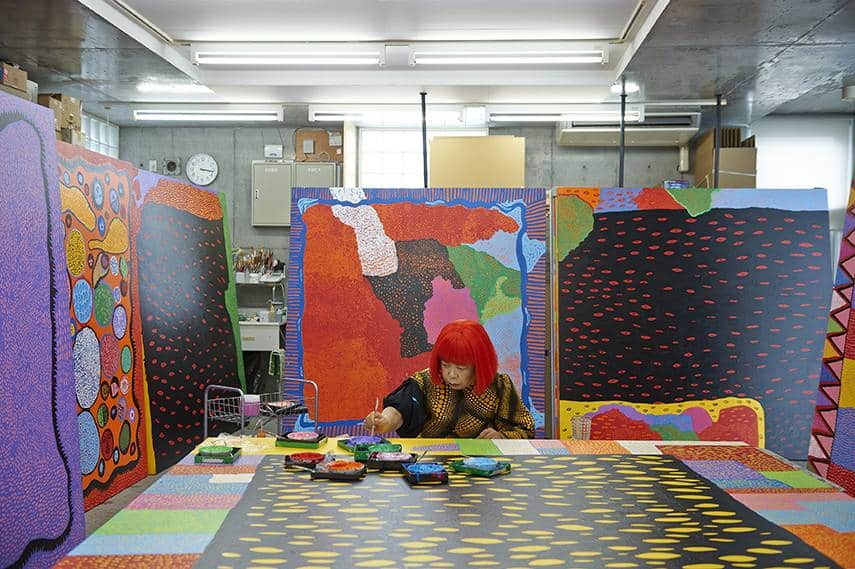
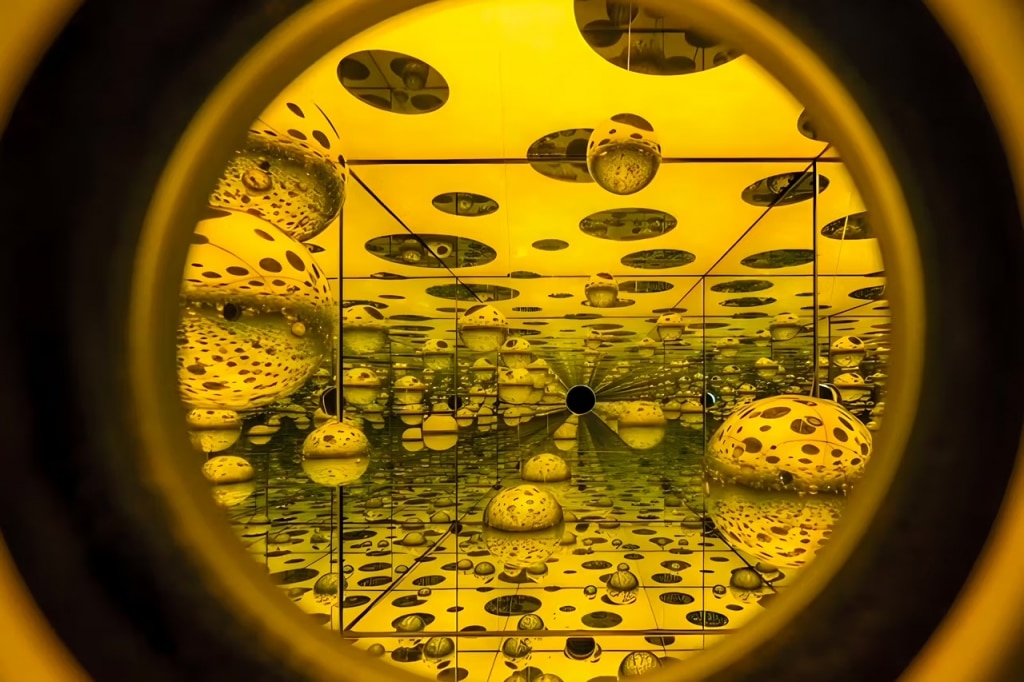
Alia Ali: The Fabric of Identity
Yemeni-Bosnian-American photographer Alia Ali uses fabric to explore themes of identity. Her work features figures covered in patterned fabric, blending into similarly adorned backgrounds or standing out against contrasting textiles. Ali’s art resonates with different traditions, with fabrics reminiscent of a Creole tignon, sari, hijab, or Andean chullo. By concealing direct gender or racial signifiers, Ali’s work challenges the male gaze and the societal tendency to classify bodies. Her art asserts the independence and strength of women, allowing them to claim their private, faceless mystery.
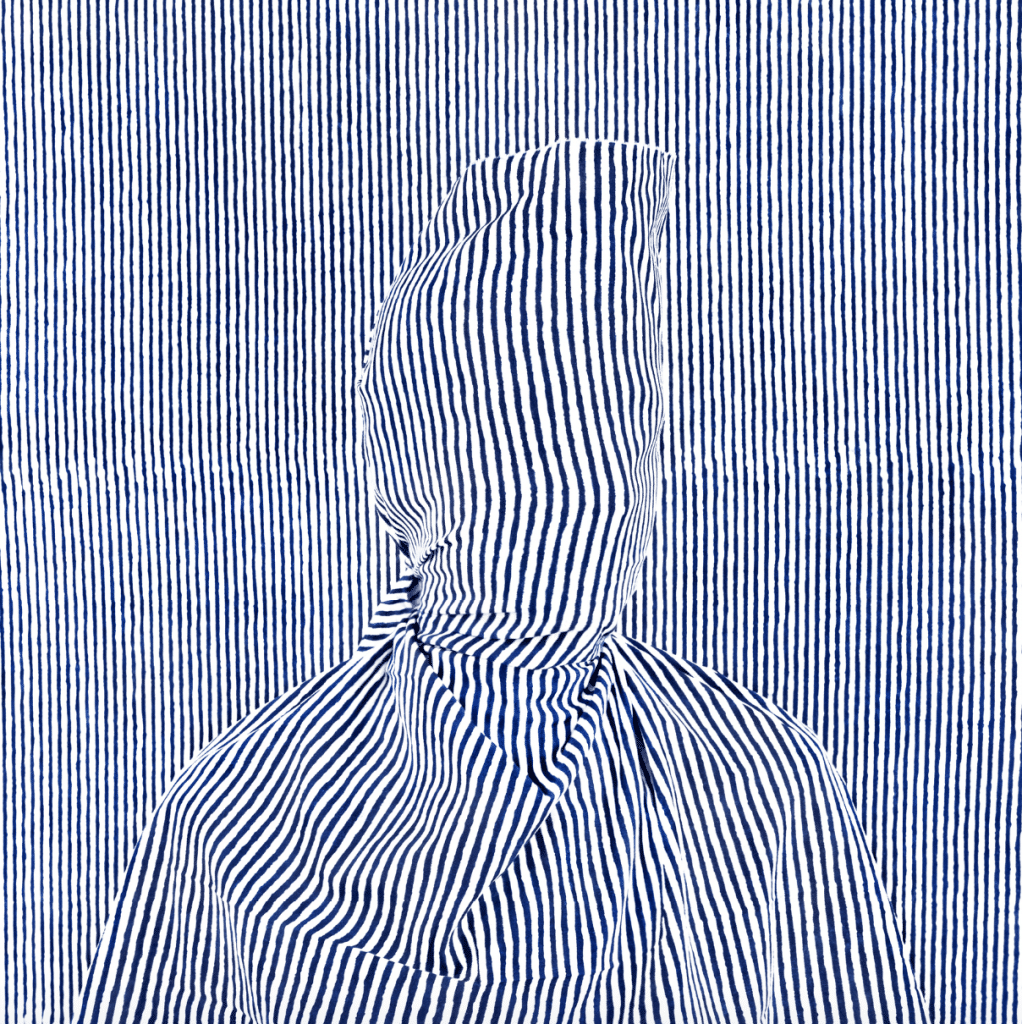
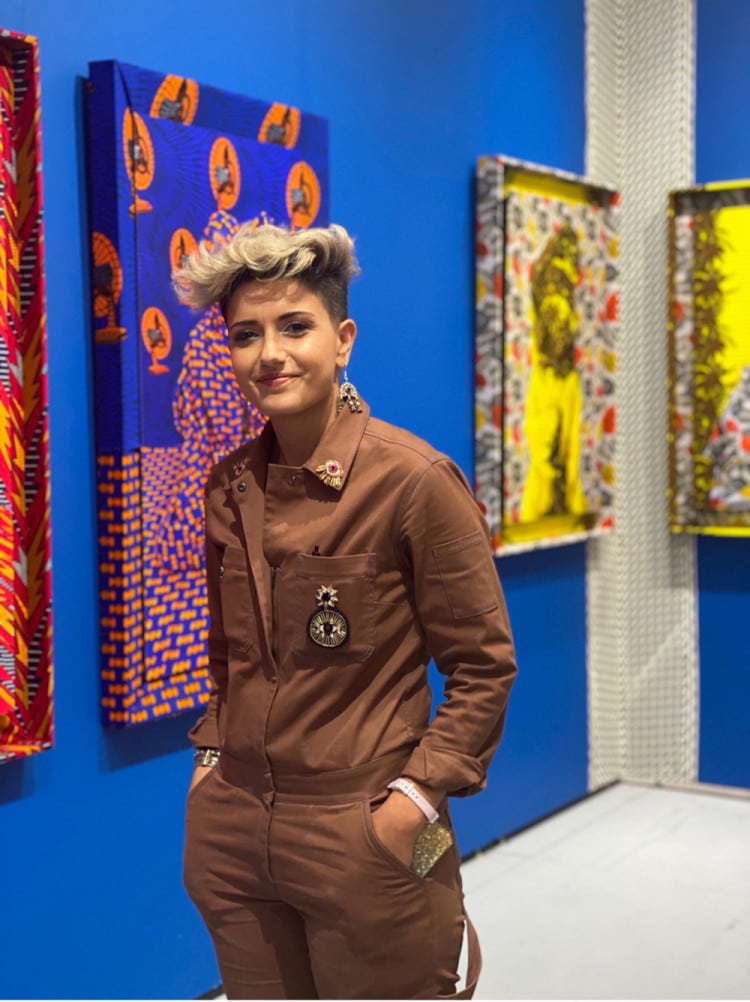
Madeline Donahue: The Invisible Labor of Motherhood
Madeline Donahue draws from personal experience to portray the wide-ranging facets of motherhood. Through her oil paintings and colored pencil drawings, Donahue uses humor to express the universal physical and emotional experiences of caring for another human. Her art highlights the invisible labor of parenting, especially relating to women. Donahue’s work captures the demanding yet rewarding moments of motherhood. Her art speaks to the sacrifices made for the ultimate joys of motherhood, providing a powerful yet relatable narrative for many women.
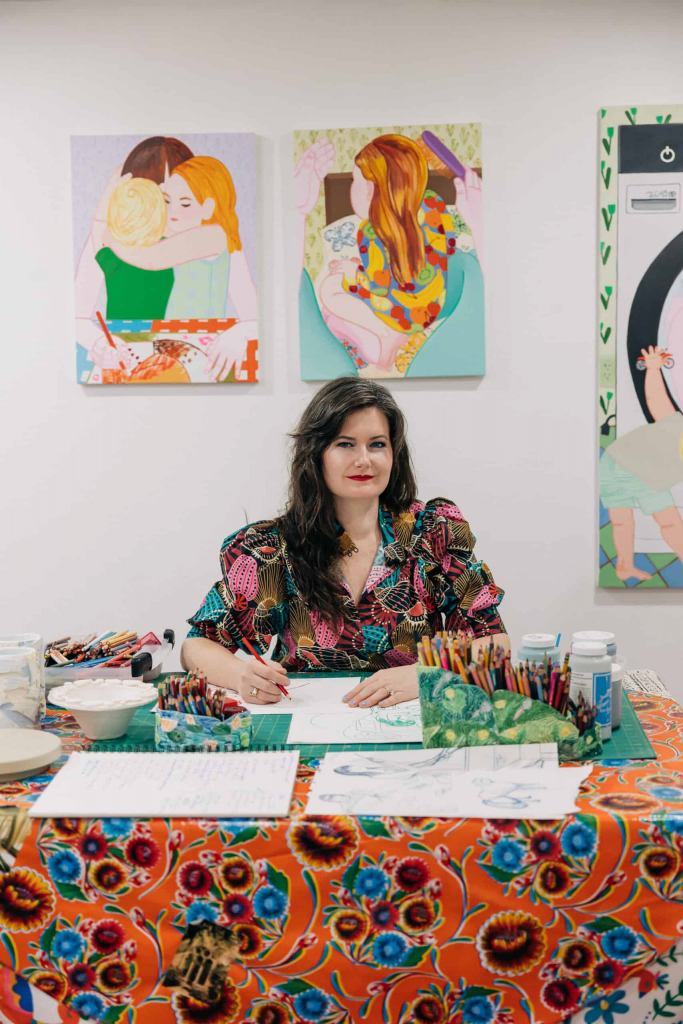
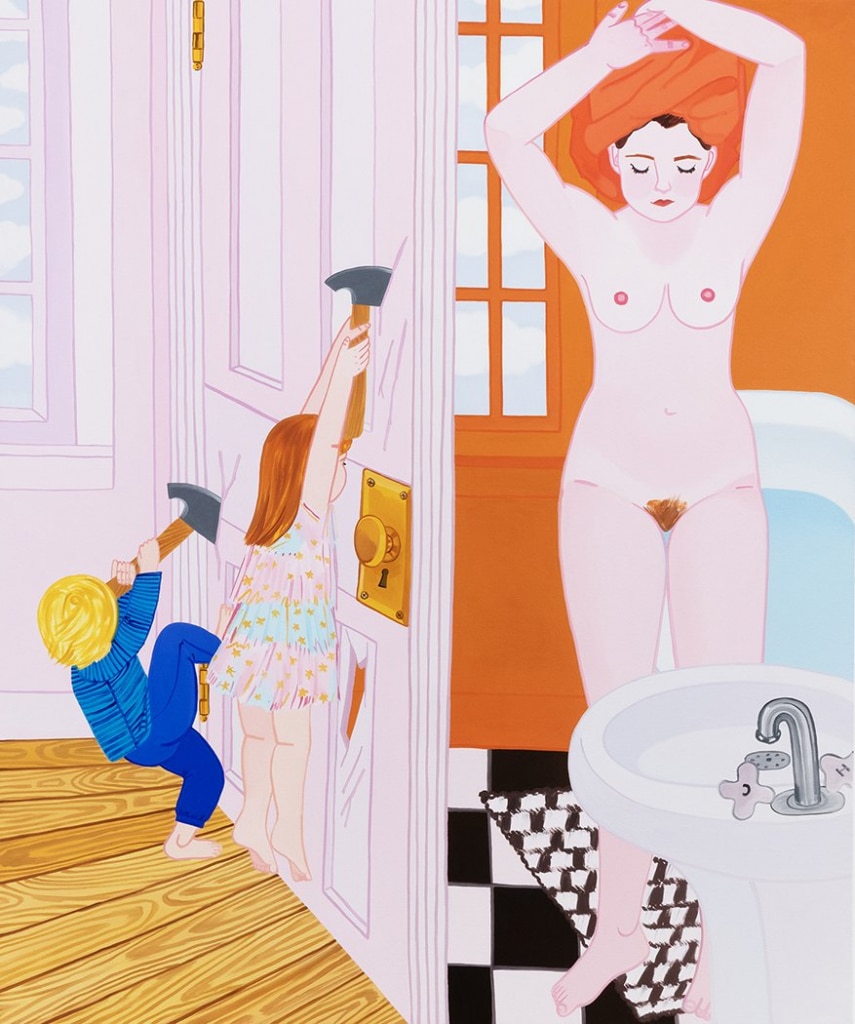
These artists – with many others throughout history, demonstrate how compelling art can challenge societal norms and empower themselves/others. As we continue to celebrate and support female artists, we recognize the importance of art in shaping our understanding of identity, resilience, and empowerment.
Artwork featured at top of post: Hilda Palafox, Memoria, 2021.



